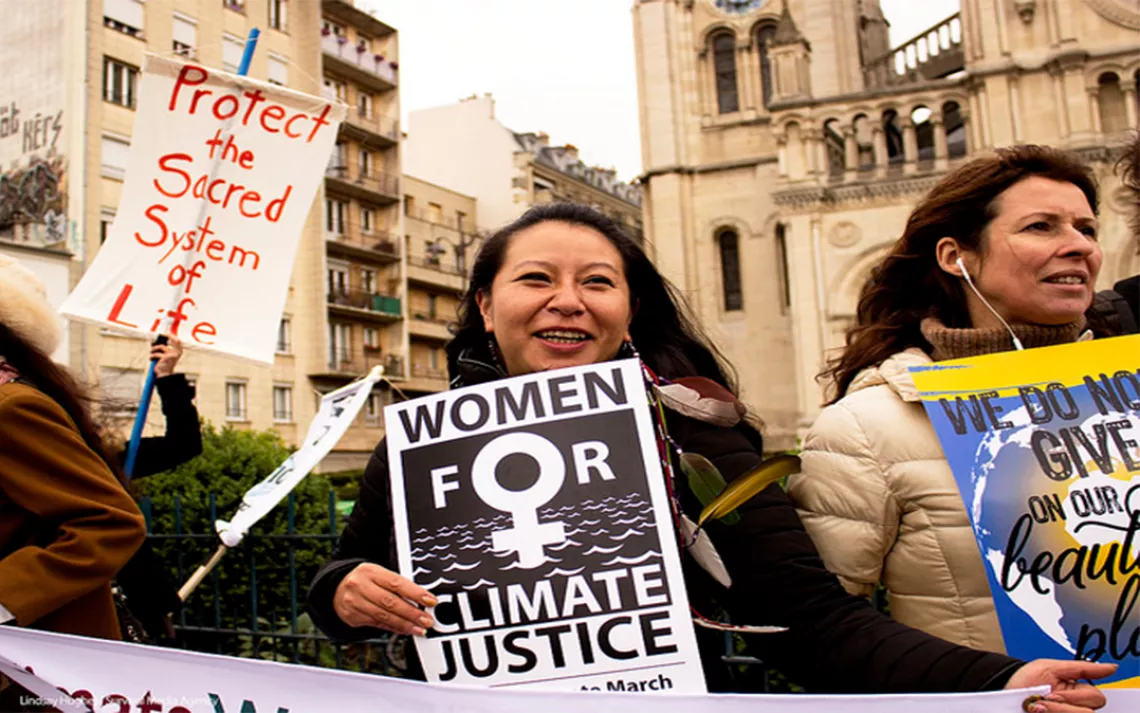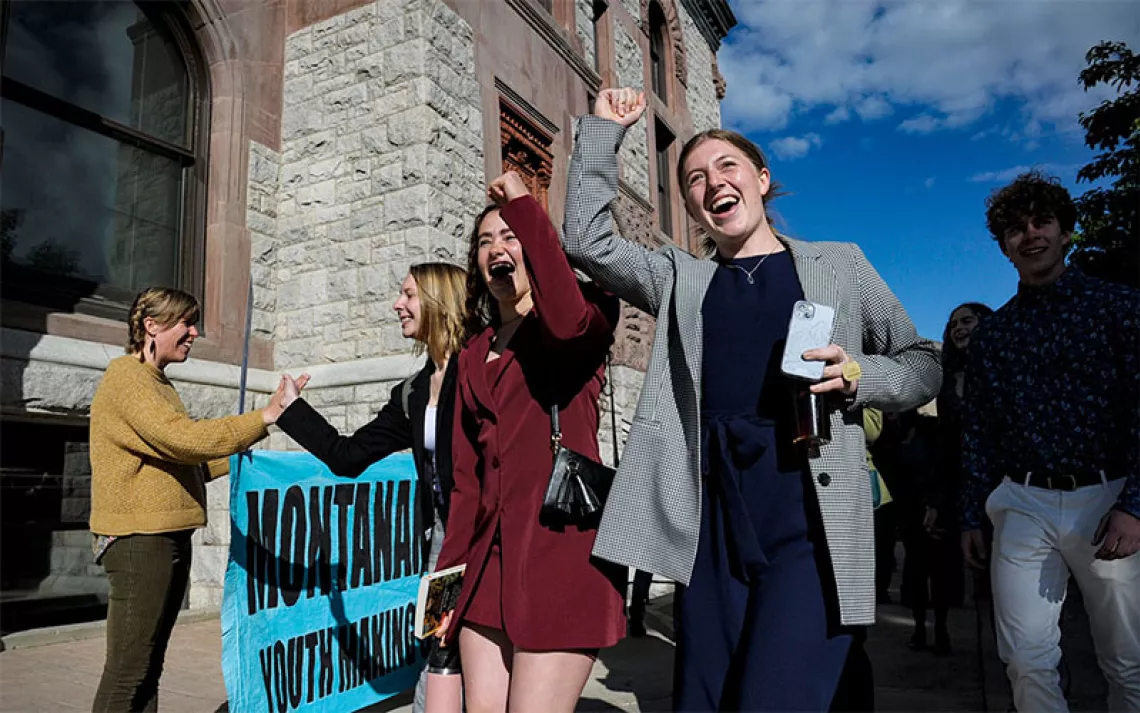Climate Activists Bring It All to the Women’s March on Washington
Climate change is a women’s issue, too

Photo courtesy of the Women's Environment & Development Organization
Cindy Wiesner is queer, Latina, and the daughter of an immigrant. She also lives in Miami, which she points out will eventually be under water because of rising sea levels. Like many people participating in the Women’s March on Washington this Saturday, she won’t be marching just for women’s rights, racial equality, or environmental justice. She’ll be marching for all three, because she lives the struggle for each. As the National Coordinator of Grassroots Global Justice and the co-chair of the Climate Justice Alliance, she’s one of the lead organizers of a large coalition that has coalesced under the banner It Takes Roots to Grow the Resistance. “Social issues, human rights issues, environmental and climate issues—we’re bringing it all,” she says.
“Bringing it all,” also referred to as intersectionality, has become an overarching theme of the Women’s March—one that environmental groups like the Sierra Club, 350.org, and the National Resource Defense Council are embracing. All three organizations have signed on as official partners of the event. A. Tianna Scozzaro, who directs the Sierra Club’s Gender, Equity, and Environment program, says, “Equity and inclusion mean that we are committed to showing up with a broad constituency of partners. This was a natural moment for us to do just that.”
Trump’s anti-immigration sentiment, racist rhetoric, sexual predatory behavior, and climate change denial—including his anti-environment cabinet picks like Scott Pruitt and Rex Tillerson—have galvanized a united front for what will be the first mass protest after the inauguration.
But Women for Climate Justice, a coalition of marchers that the Sierra Club is helping to organize, also has a broader message: Climate change is a women’s issue.
Women across the globe are disproportionately affected by climate change, partly because the poor experience its worst effects, and women make up a large percentage of the world’s poor.
Climate change also reinforces gender inequality by limiting women’s physical and economic mobility. And, when natural disasters strike, women suffer the most.
Ultimately, climate change is a women’s issue because all issues are women’s issues, Bridget Burns, the co-director of the Women's Environment & Development Organization, says. Women should be represented in all aspects of society, and need to be a central part of the conversation. “Women’s organizing is really the key to all kinds of sustainable change.”
The climate justice message is resonating. At least 300 Sierra Club members plan on marching with the coalition. They will be joined by contingents from Climate Parents, Women’s Earth and Climate Action Network, the Women's Environment & Development Organization, and the People’s Climate Movement. Other environmental groups will be there in force, too, all joining in the larger 200,000-plus chorus that is demanding human rights and justice for everyone.
This is what it takes to grow the resistance.
The day after the election, Wiesner was devastated, and afraid. But seeing people from vastly different segments of society unite in the face of the ugliness—even when that unity can be challenging—gives her hope: “We have the opportunity now to see the best in people,” she says. We’re going to see some of the very best of humanity.”
What You Can Do
Make your opposition to the Trump-Pence agenda heard. Find a Women’s March nearest you.
 The Magazine of The Sierra Club
The Magazine of The Sierra Club



